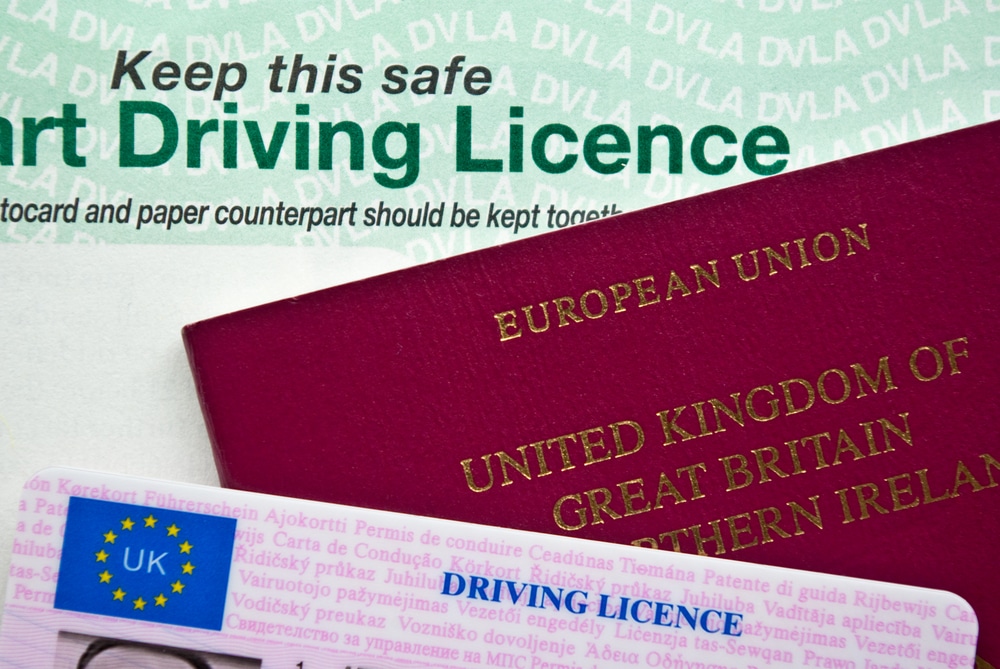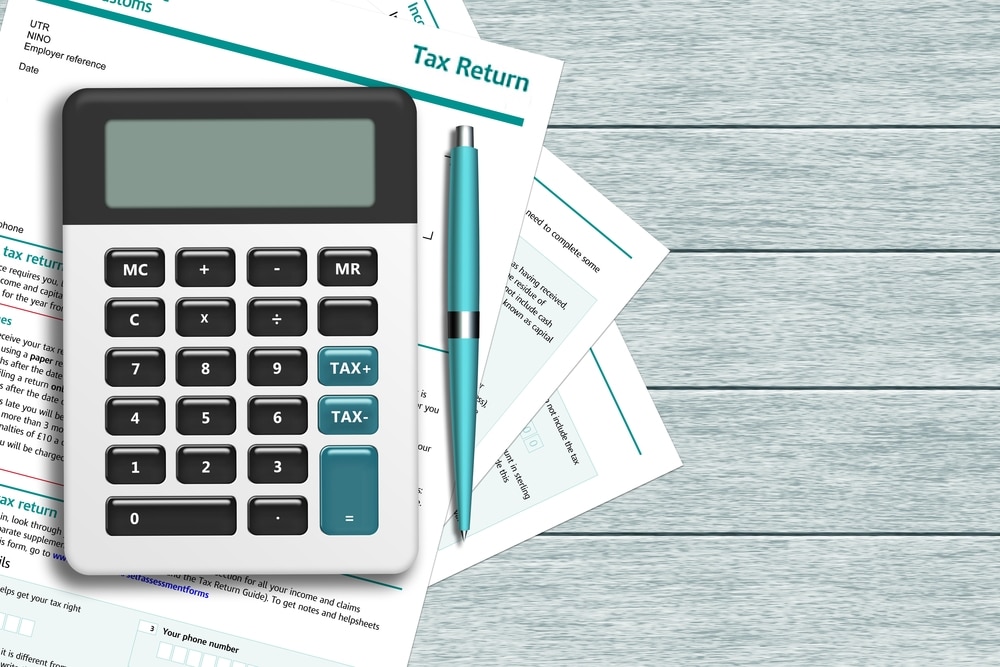Jasmine Birtles
Your money-making expert. Financial journalist, TV and radio personality.

Do you want your hard-earned cash slipping through your fingers, right in front of your very eyes? Or would you rather take steps to protect your money?
Unfortunately, there are plenty of people out there who would be more than happy to take your cash off of you. It could be anyone from the taxman, to scammers, or even your own family.
Get to know 8 key ways you can protect your money, and prevent anyone else from getting their hands on your cash.
Avoiding fines might sound obvious but it’s easy to forget little bits of paperwork. Take extra care to check the due dates and avoid any fines being added.
Here are a few surprises on the list you really need to be aware of:

You are legally required to update your driving licence and your photo every ten years. If you fail to do this, you may receive a hefty £1,000 fine. To renew your driving licence there is a £20 charge, and you can do so via the DVLA website. Whatever the case, it’s always better to pay your renewal fee than the fine or both at once!

If you’re self-employed and doing your tax returns online then the deadline is 31st January each year. If you miss the deadline you’ll be given an instant £100 fine. If your tax return is more than three months late, HMRC will start fining you £10 a day. It means that if you still haven’t submitted a tax return six months after the deadline, you will owe £1,000 in fines.
Find out here how to fill in a self-assessment form the easy way. Add these deadlines to your calendar and set reminders a couple of weeks in advance so you have time to get the paperwork together and make sure you’re not fined!

As bonkers as it sounds, buying advance train tickets can cause fines. It’s one of those rules which isn’t made obvious, but if you get off at stops earlier than the one stated on your ticket, you may be issued with a penalty fine. Always check the terms and conditions before you buy a ticket!
Find out here how to get cheap train tickets.

If you take your child out of school during term time without the school’s permission, you could be fined £60 for each parent, which may increase to £128 each if payment of the original fine is delayed.
The gov website has a full list of which fines apply if your child misses school without advance permission.
A census takes place in the UK every 10 years; the last UK census was carried out in March 2021. You are committing a crime if you don’t complete it and you can be prosecuted, facing a fine of up to £1,000 along with a criminal record!
Find out how to complete a census here.
Unfortunately, there are plenty of fraudsters out there only too willing to con you out of your hard-earned cash. It’s essential to be aware of the latest scams so you can protect your money. It’s worth regularly visiting our rip-off Britain section, so you’re one step ahead of the criminals.
Frauds you need to be particularly aware of include:

This scam targets anyone using a cash machine. Criminals fix a contraption over the slot that you put your card into – designed to look like part of the ATM. These read your card details, while a separate tiny camera fitted to the machine films your PIN. After just one use, the criminals have everything they need to empty your account. To stay safe, you should always check the card slot to see if there’s anything unexpected and shield your PIN with your other hand. If you’re in any doubt about the way the cashpoint looks, don’t use it.

This is a cruel crime, aimed at people who use online dating sites. Fraudsters trawl sites for a victim, usually an older woman who has some cash, and start up an online relationship that can go on for months – enough to earn the trust of the victim. Then they will claim to have a crisis (often related to their family) and will ask the victim to send money. To protect yourself, be very aware when meeting people online and don’t give too much information. If they ask for money, this should start alarm bells ringing.
Be aware! Email fraudsters try to get your personal information so they can steal your passwords or other login details which may give them access to a number of accounts under your name – including your bank account. These aren’t always easy scams to notice – fraudsters are becoming wiser and smarter with how they run scams. Good practice is to always check the details of the email address before responding, especially if they’re asking for personal details or money – this is an immediate warning sign.

Whilst most of us can’t wait to go abroad again, there are lots of potential frauds waiting for you on holiday, so make sure you keep your eyes open. Things to look out for include pickpockets, waiters taking your card and taxis overcharging. Always be wary of your surroundings, especially in crowded areas where pickpockets may be lingering and waiting for the perfect moment to strike.

Have you ever had that phone call where they ask you about your latest car crash and they go on about buying a compensation plan? Well, don’t give your details and hang up – it’s a scam!
Phone scams come in a number of guises, including the computer repair scams – where a fraudster rings up pretending to represent Microsoft or Windows and tries to make you download a virus. There are also missed call scams – where you ring back a missed call only to find out it’s a premium number; and identity theft scams – where a fraudster will ring up saying you’ve had your identity stolen and demanding your personal details on the pretext they are trying to help. Don’t be fooled, read our top 10 phone scams and how to avoid them.
Take proactive steps to protect yourself. Make sure your PC and Smartphone have anti-virus software on it and think about using a credit card to shop online, as it offers additional protection.
Visit our rip-off Britain section so you can hear about all the latest scams as soon as they emerge.

Tax evasion is illegal and totally wrong, but there are perfectly legal ways to avoid tax and protect your money.
For more information read these five easy ways to pay less tax.

Almost 30 million people in Britain don’t have a will, including more than third of people over 55.
Without a will, you cannot protect your money or your family, because your assets will be allocated according to strict rules after your death – so may not go to the people you intend. You will also miss any opportunity to reduce the tax burden on your loved ones.
See our easy guide to making a will here, and get a free download of our latest e-book, You’ve Been Left an Inheritance, What Now?

It’s rarely talked about, but family demands for money can be hugely damaging both to your relationship and your bank balance.
Of course, it’s your money and how much you give to your family is your choice. However, if you’re in a position where your family is asking you for money that you cannot afford or you do not want to give, then you’ll need to stand firm and be direct with them.
Have the confidence to say NO and know when you can help and when it’s either beyond your means or enabling poor behaviour, and to judge the situation logically.
It’s not about being cold or selfish, it’s about protecting both yourself and your family. If you give money to a family member, or indeed a friend, it’s far better to give it as a gift than a loan. Asking for repayments is awkward and uncomfortable for both people, so it’s better to call it a gift and be done with it.
If you have to do it as a loan (and this does often happen), create a document that you both sign (and both have copies of) where you set out the terms of the loan. It should include:
It’s a shame to do it but it will give you peace of mind and mean that you both know where you stand. Having things written down on paper makes it more official. Having said that, bear in mind that some friends and family may still not pay and this could lead to more awkwardness.
Ultimately, tell yourself that you will only lend money that you can afford to lose.

The pandemic has been a tough time for everyone, whether you or your family has struggled with illness, or not you’ve not been able to work – the importance of being prepared for the worst is clear.
If you can’t pay your bills, your mortgage, or need to take out an emergency loan, it can cause serious trouble for your bank balance.
That is why for many people it is a good idea to take out income protection insurance. With this cover, if you fall ill and cannot work, you will receive payouts until you are able to return to work or retire.
The payouts are a maximum percentage of your earnings, usually 50-70% tax-free. How much it will cost will depend on your age, gender, occupation and general health.
For more information read our article Do you need income protection insurance?

Having a savings safety net is so beneficial, and is even more important as we continue to feel the effects of the pandemic. If you are able to create a really good ‘savings safety net’ for yourself, you will be protected from the majority of financial shocks that tend to hit people.
If you have put aside enough money to cover your basic living costs for six months, that will help you get through financial shocks like losing your job, getting divorced or being bereaved.
It usually takes up to six months for people to recover from these events, but while you’re in it you might have to find money from somewhere to pay the bills. If you have a stash of cash in a savings account (that you don’t touch unless you have problems) then you will be covered until the money comes in again. In the past 18 months, many people have experienced huge financial hurdles due to COVID-19. No one saw it coming but having a savings safety net can come in handy and it can be a gateway to different opportunities when you most need it.
Take a look at how to set up a savings safety net.

Since April 2015, people over the age of 55 have been able to withdraw as much money as they like from their pension at any time – subject to tax.
For some retirees this has brought huge benefits but, for others, it means having access to a large amount of money without necessarily having the experience or skills to know exactly what to do with it.
In this confusion (and make no mistake about it, pensions can be confusing) scammers have been taking advantage.
One common approach is to cold call people, and offer them a pension review. During this process they are encouraged to withdraw their money and invest it in a way that will benefit the scammer. In the month after pension freedoms were introduced, losses from these scams more than trebled.
To protect your money, if you’re looking to get a financial adviser then make sure you’re absolutely certain that they’re FCA-registered. Visiting the citizens advice website is a good place to begin your search for a financial adviser.

You might think that storing your money away in a savings account is a good way to protect it. However, if your investments are not keeping up with, or beating, inflation then in real terms you’re actually losing money.
That is why we at MoneyMagpie often recommend putting your money into a stocks and shares ISA. This is just like putting money in any stock market investment, but you’re ‘wrapping it in a tax saving bag’ which means you won’t have to pay tax.
Admittedly, if you’re planning to invest, you need a fair chunk of cash to put away for the long term (at least 10 years). And if you have no idea where to start when it comes to investing then visit our investing section and find out everything you need to know.
Have you lost any money to fraudsters, fines or family members?
What ways do you plan to use to protect your money?
Let us know in the comments section below.
Disclaimer: MoneyMagpie is not a licensed financial advisor and therefore information found here including opinions, commentary, suggestions or strategies are for informational, entertainment or educational purposes only. This should not be considered as financial advice. Anyone thinking of investing should conduct their own due diligence.

how does it work now trying to get a will when your housebound? like dose a lawyer come to us? what exactly goes in a will when you dont have a house or land or kids to protect? can i legally leave the money iv saved? iv been wanting to make a will so that the small amount of money i may have when i die goes to certain people. but i dont know if they will come to the house because of the pandemic, if it will cost, and if i can legally leave the money as ive never… Read more »
Citizens Advice website has some information and the local group can often give more detailed help, as to how to do this! Some charities will help and can do a lot by phone.
Some good advice to keep your money safe.
Nice Post. Thank You So much for this great Post.
For packers And Movers in Surat visit Top10movers in Surat. We Provide Best packers and movers Services. We are specialized in house relocation, car shifting, office relocation and many more.